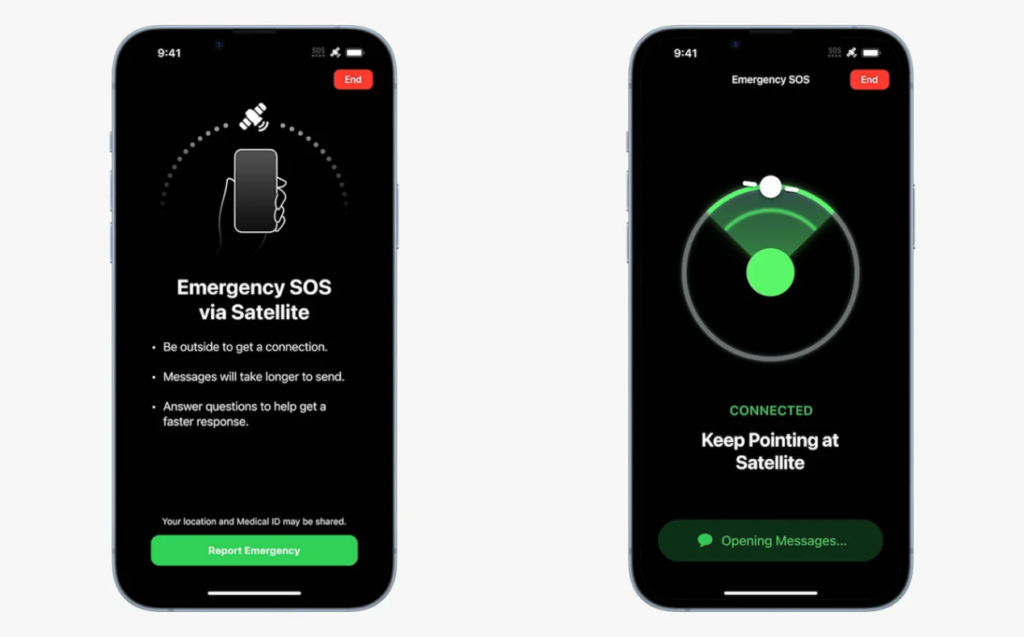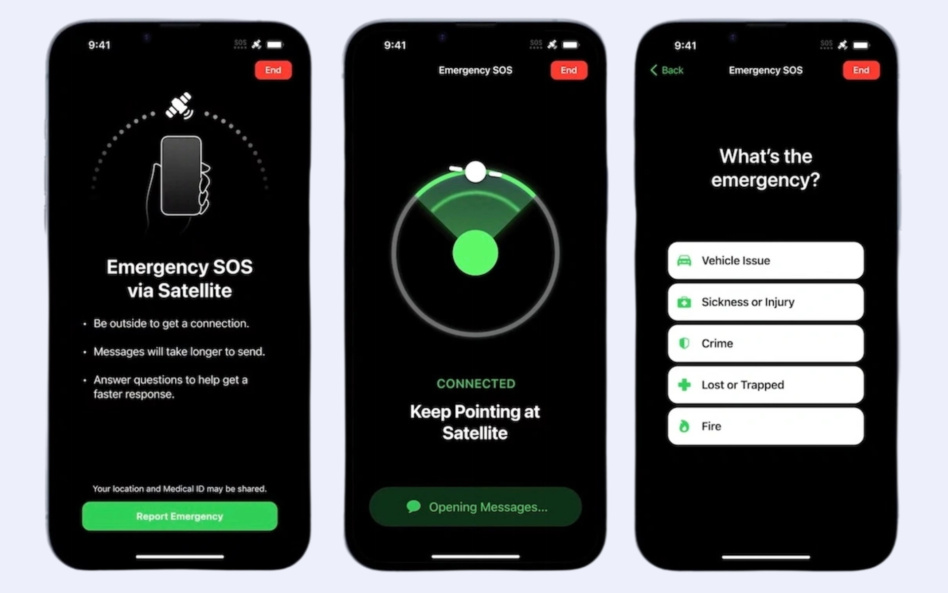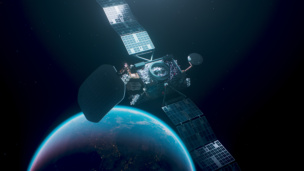Apple unveiled the iPhone 14 on Wednesday and it turns out the rumors were true. The Cupertino consumer device giant will add satellite connectivity into the next generation of its best-selling product.
As one satellite industry executive put it to us, “this was the worst kept secret in the industry.” Now, the cat is out of the bag.
The fine print
Direct-to-phone satellite links will work for Apple’s forthcoming “emergency SOS” service. The service will support a preselected set of prompts, when a phone is out of range of cellular coverage and doesn’t have Wi-Fi. The iPhone will be able to send an emergency SOS message if the device has a clear view of the sky and has line of sight with a satellite.
- Apple says it will take 15 seconds to send the message.
- If you’re standing under tree cover or the signal is weak, it could take up to a few minutes.
- To be clear, this emergency SOS feature is highly bandwidth-constrained and does not enable data, voice, or regular messaging services.
Nifty UX: For the uninitiated, aka 99.99% of phone owners who aren’t used to linking a device to a satellite, there’s an app a feature for that. Emergency SOS will prompt users to point their iPhones at a satellite to get a signal.

When? The service will start rolling out in North America in November, and will be free for two years for American and Canadian users.
Who’s on the other end?
Globalstar. In an SEC filing, the satellite operator notes it’s allocating 85% of current and future network capacity to support the iPhone service. Apple will cover 95% of the capex costs to support the new service. But, Globalstar still says it will need to raise more debt to build and launch new satellites. It’s working with Goldman Sachs and expects to finalize financing in Q4.
- Globalstar says it now expects to make $185M–$230M in total revenue this year (with EBITDA margins of ~55%).
- By contrast, the company made $112M in revenue (and lost $112M) last year.
- The satellite operator expects revenue to grow 35% by 2026.
The market reaction?
🎢🎢🎢. Trading of Globalstar ($GSAT) was halted for news during yesterday’s Apple event. The stock had dropped ~16% before the iPhone event, then rocketed up by as much as 42%, and then fell back down to Earth, finishing Wednesday at -1.44%.
The race is on
We’ll leave it to Matt Desch, the CEO of Iridium ($IRDM), to describe the vibes:
Desch tweeted that after T-Mobile and SpaceX’s announcement. AST SpaceMobile ($ASTS) and Lynk are also working on connecting phones from space, with the former launching its BlueWalker 3 test satellite later this week, and the latter switching on commercial service this quarter. AST SpaceMobile CEO Abel Avellan celebrated yesterday’s iPhone news:
All that is to say, Apple’s announcement isn’t likely to send shockwaves through the satellite world. But it’s still significant, and may bring more mainstream interest into the space.
+ A word from Woz: “Today’s announcement from Apple regarding the iPhone 14 and emergency SOS satellite connectivity further demonstrates that humanity is once again deepening our connection to and reliance on space,” Apple (and Privateer) cofounder Steve “Woz” Wozniak said in a statement.




